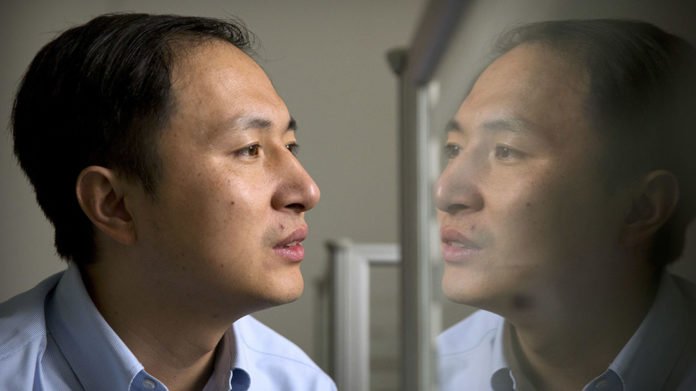A Chinese scientist has created the world’s first genetically edited babies- twin girls by altering DNA using a new tool capable of rewriting the very blueprint of life.
He Jiankui of Shenzhen, said, “I altered embryos for seven couples during fertility treatments, with one pregnancy resulting thus far. My the goal was not to cure or prevent an inherited disease, but to try to bestow a trait that few people naturally have—an ability to resist possible future infection with HIV, the AIDS virus.”
There is no independent confirmation of He’s claim, and it has not been published in a journal, where it would be vetted by other experts. He revealed it Monday in Hong Kong to one of the organizers of an international conference on gene editing that is set to begin Tuesday, and earlier in exclusive interviews with The Associated Press.
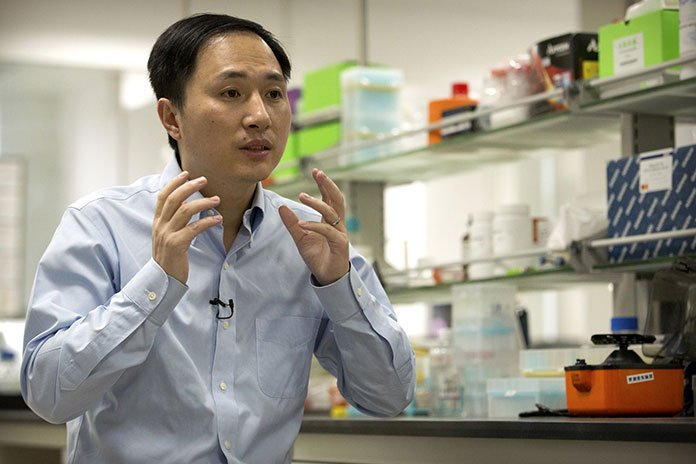
He said, “I feel a strong responsibility that it’s not just to make a first, but also make it an example. Society will decide what to do next in terms of allowing or forbidding such science.”
A few researchers were shocked to know about the claim and emphatically censured it. According to scientists, it’s too unsafe to try, and some scientists even denounced the Chinese report as human experimentation.
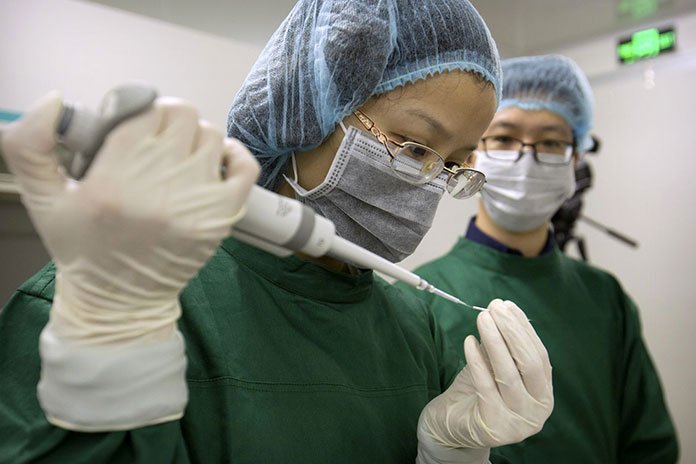
Dr. Kiran Musunuru, a University of Pennsylvania gene editing expert said, “It’s unconscionable … an experiment on human beings that is not morally or ethically defensible.”
Dr. Eric Topol, who heads the Scripps Research Translational Institute in California said, “This is far too premature. We’re dealing with the operating instructions of a human being. It’s a big deal.”
Scientist used a tool called CRISPR-cas9 to operate on DNA to supply a needed gene or disable the one that’s causing problems.
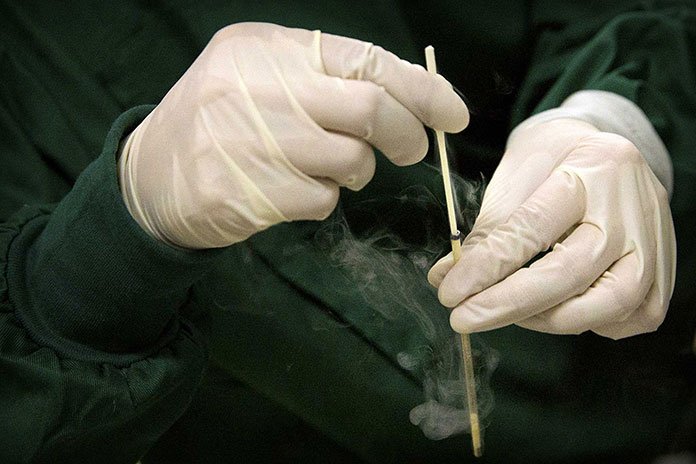
He Jiankui (HEH JEE’-an-qway), who goes by “JK,” studied at Rice and Stanford universities in the U.S. before returning to his homeland to open a lab at Southern University of Science and Technology of China in Shenzhen, where he also has two genetics companies.
The U.S. scientist who worked with him on this project after He returned to China was physics and bioengineering professor Michael Deem, who was his adviser at Rice in Houston. Deem also holds what he called “a small stake” in—and is on the scientific advisory boards of—He’s two companies.
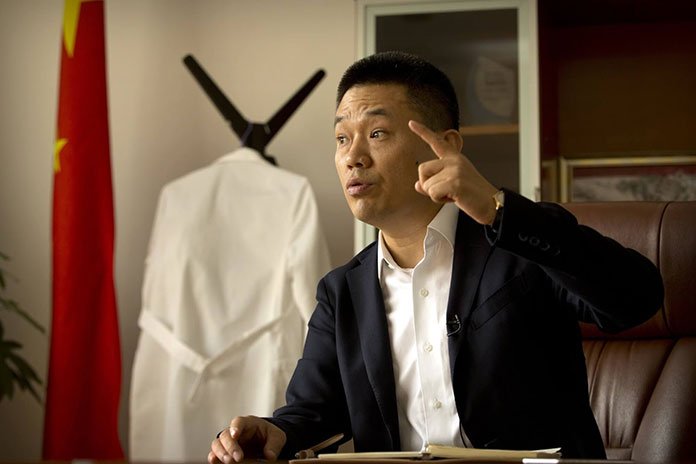
He said, “I practiced editing mice, monkey, and human embryos in the lab for several years and has applied for patents on his methods. After that, I chose embryo gene editing for HIV because these infections are a big problem in China. I sought to disable a gene called CCR5 that forms a protein doorway that allows HIV, the virus that causes AIDS, to enter a cell.”
He said, “All of the men in the project had HIV and all of the women did not, but the gene editing was not aimed at preventing the small risk of transmission. The fathers had their infections deeply suppressed by standard HIV medicines and there are simple ways to keep them from infecting offspring that do not involve altering genes.”
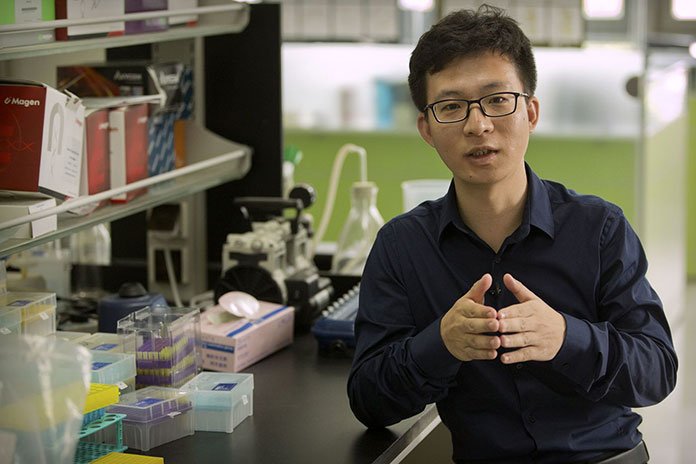
He described, “The gene editing occurred during IVF or lab-dish fertilization. First, sperm was “washed” to separate it from semen, the fluid where HIV can lurk. A single sperm was placed into a single egg to create an embryo. Then the gene editing tool was added.”
“When the embryos were 3 to 5 days old, a few cells were removed and checked for editing. Couples could choose whether to use edited or unedited embryos for pregnancy attempts. In all, 16 of 22 embryos were edited, and 11 embryos were used in six implant attempts before the twin pregnancy was achieved.”
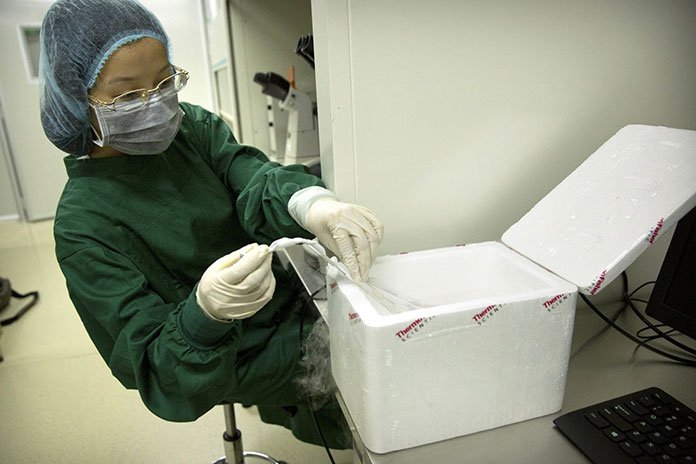
Tests suggest that one twin had both copies of the intended gene-altered and the other twin had just one altered, with no evidence of harm to other genes. People with one copy of the gene can still get HIV, although some very limited research suggests their health might decline more slowly once they do.
When scientists reviewed the material provide by He, they noted, “the editing was incomplete and that at least one twin appears to be a patchwork of cells with various changes.”
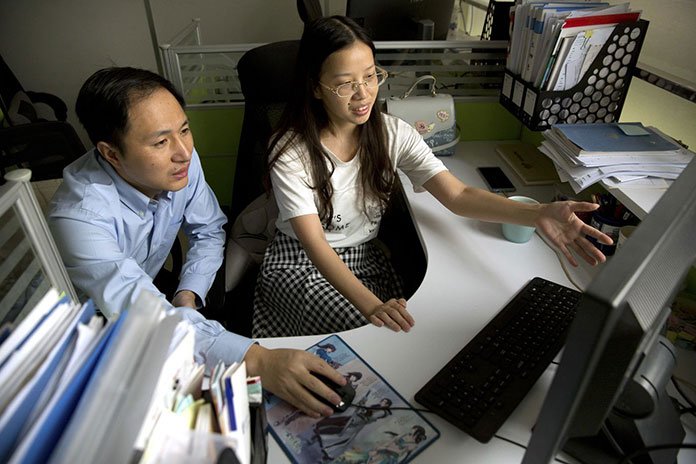
Harvard University’s George Church said, “The use of that embryo suggests that the researchers’ “main emphasis was on testing editing rather than avoiding this disease.”
Even if editing worked perfectly, people without normal CCR5 genes face higher risks of getting certain other viruses, such as West Nile, and of dying from the flu. Since there are many ways to prevent HIV infection and it’s very treatable if it occurs, those other medical risks are a concern.
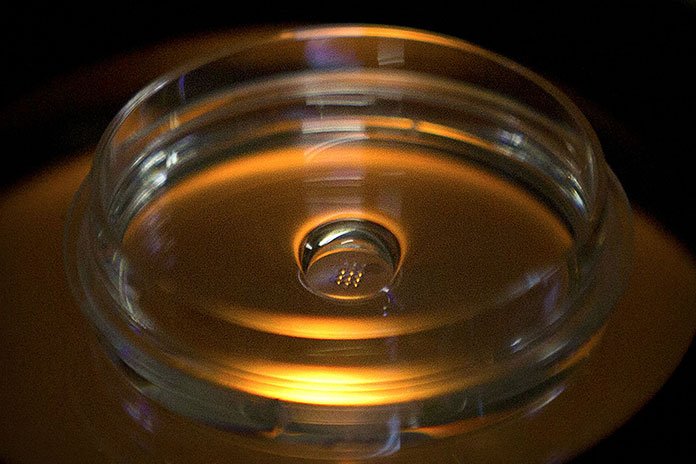
The Chinese scientist, He, said he personally made the goals clear and told participants that embryo gene editing has never been tried before and carries risks. He said he also would provide insurance coverage for any children conceived through the project and plans medical follow-up until the children are 18 and longer if they agree once they’re adults.
Further pregnancy attempts are on hold until the safety of this one is analyzed and experts in the field weigh in, but participants were not told in advance that they might not have a chance to try what they signed up for once a “first” was achieved, He acknowledged. Free fertility treatment was part of the deal they were offered.
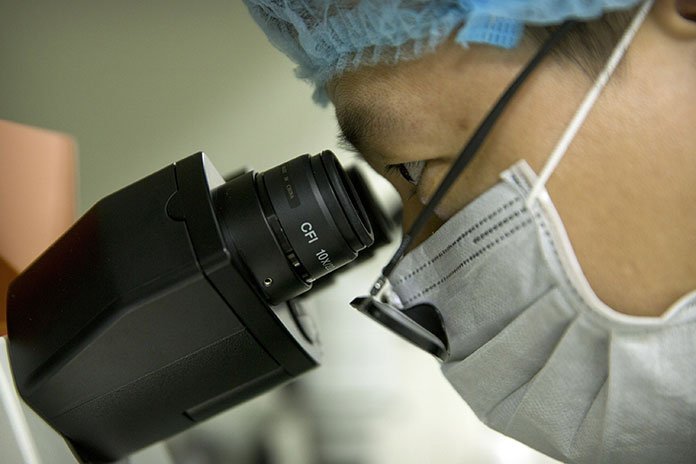
He reported, “The study participants are not ethicists, but are as many authorities on what is correct and what is wrong because it’s their life on the line.”
“I believe this is going to help the families and their children. If it causes unwanted side effects or harm, I would feel the same pain as they do and it’s going to be my own responsibility.”
